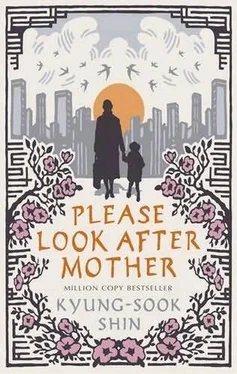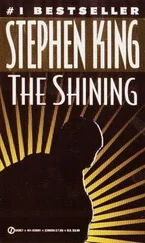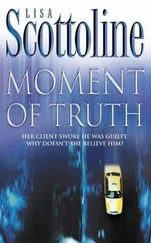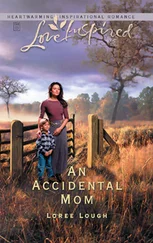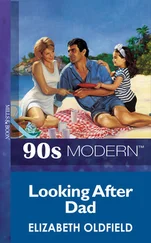Kyung-sook Shin - Please Look After Mom
Здесь есть возможность читать онлайн «Kyung-sook Shin - Please Look After Mom» весь текст электронной книги совершенно бесплатно (целиком полную версию без сокращений). В некоторых случаях можно слушать аудио, скачать через торрент в формате fb2 и присутствует краткое содержание. Жанр: Современная проза, на английском языке. Описание произведения, (предисловие) а так же отзывы посетителей доступны на портале библиотеки ЛибКат.
- Название:Please Look After Mom
- Автор:
- Жанр:
- Год:неизвестен
- ISBN:нет данных
- Рейтинг книги:4.5 / 5. Голосов: 2
-
Избранное:Добавить в избранное
- Отзывы:
-
Ваша оценка:
- 100
- 1
- 2
- 3
- 4
- 5
Please Look After Mom: краткое содержание, описание и аннотация
Предлагаем к чтению аннотацию, описание, краткое содержание или предисловие (зависит от того, что написал сам автор книги «Please Look After Mom»). Если вы не нашли необходимую информацию о книге — напишите в комментариях, мы постараемся отыскать её.
Told through the piercing voices and urgent perspectives of a daughter, son, husband, and mother, Please Look After Mom is at once an authentic picture of contemporary life in Korea and a universal story of family love.
You will never think of your mother the same way again after you read this book.
Please Look After Mom — читать онлайн бесплатно полную книгу (весь текст) целиком
Ниже представлен текст книги, разбитый по страницам. Система сохранения места последней прочитанной страницы, позволяет с удобством читать онлайн бесплатно книгу «Please Look After Mom», без необходимости каждый раз заново искать на чём Вы остановились. Поставьте закладку, и сможете в любой момент перейти на страницу, на которой закончили чтение.
Интервал:
Закладка:
When you stopped talking, one person raised his hand and asked if he could ask a question. You told him to go ahead. “Even though he’s blind, he said traveling was his hobby, Mom.” You were stunned. Where would a blind person travel? He said he’d read something you had written a long time ago that was based in Peru. The character in the novel went to Machu Picchu, and there was a scene where a train went backward. He said after he read that he wanted to ride that train in Peru. He asked if you had personally ridden the train. It was a work you had written over ten years ago. You, who had such a bad memory that you often opened the refrigerator door and forgot why you had opened it, and would stand there for a while with the chill of the fridge washing over you until you gave up and shut the door, started to talk about Peru, where you had traveled before you wrote that book. Lima; Cuzco, dubbed the Belly Button of the Universe; San Pedro Station, where you took the train to Machu Picchu at dawn. About the train that started forward and jerked backward many times before starting off to Machu Picchu. You told Mom, “The names of the places and mountains that I’d forgotten about poured out.” Feeling friendship from eyes that had never seen, eyes that seemed to understand and accept any flaw of yours, you said something you had never said about that book. Mom asked, “What was it?”
“I said if I were to write it again I don’t think I would write it like that.”
“Is that such a big deal to say?” she asked.
“Yes, because I was rejecting what exists, Mom!”
Mom gazed at you in the darkness and said, “Why do you hide those words? You have to live free, saying whatever you feel,” and pulled her hand from your grasp and rubbed your back. When you were a child, she used to wash your face the same way, with her big soothing hands. “You tell such good stories,” she said.
“Me?”
Mom nodded. “Yeah, I liked it.”
She liked my story? You were moved. You knew that what you’d said wasn’t all that good; it was just that you were talking to her differently after your experience at the Braille library. After you’d left home for the city, you’d always talked to her as if you were angry at her. You talked back to her, saying, “What do you know, Mom?” “Why would you do that, as a mother?” you’d rebuke. “Why do you want to know?” you retorted coldly. After you figured out that Mom no longer had the power to scold you, if she asked, “Why are you going there?” you replied curtly, “Because I have to.” Even when you had to take a plane because your book was being published in another country, or you had to go abroad for a seminar, when she asked, “Why are you going there?” you stiffly replied, “Because I have business to take care of.” Mom told you to stop taking airplanes. “If there’s an accident, two hundred people die at once.” “It’s because I have work to do,” you’d say. If Mom asked, “Why do you have so much work?” you replied, sullenly, “Yes, all right, Mom.” It was difficult to talk to her about your life, which had nothing to do with hers. But when you talked about feeling lost seeing the Braille version of your book, and the mounting panic you felt standing in front of four hundred blind people, she listened as intently as if her headache had gone away. When was the last time you’d told Mom about something that had happened to you? At a certain point, the conversations between you and Mom became simplified. Even that was not done face to face, but by telephone. Your words had to do with whether she ate, whether she was healthy, how Father was, that she should be careful not to catch cold, that you were sending money. Mom talked about how she made kimchi and sent some, that she had strange dreams, that she sent rice, or fermented bean paste, that she’d brewed motherwort to send you, and that you shouldn’t turn off your phone because the messenger would call before delivering all these packages.

Carrying a paper bag that held your Braille books, you said goodbye to the people at the Braille library. You still had two hours to kill before your return flight. You remembered standing at the dais and looking out the window, averting your gaze from those blind eyes, and seeing the harbor dotted with boats. You thought, Well, since there’s a harbor, there’s got to be a fish market. You took a cab and asked to be taken there. You like to visit the market whenever you have time to spare in a place you’ve never been. Even on a weekday, the fish market was bustling. Outside the market you saw two people cutting apart a fish that was as big as a sedan. You asked if it was tuna, since it was so large, but the vendor said it was an ocean sunfish. You were reminded of a character in a book whose title you couldn’t remember. She was from a seaside town, and she would go to the huge aquarium in the city every time she had a problem, to talk to the ocean sunfish swimming inside. She would complain that her mother took all her life savings and went off with a younger man to a different city, but then, at the end, would say, But I miss my mom; you’re the only one I can tell this to, sunfish! You wondered if that was the same fish. Thinking it was a unique name for a fish, you asked, “Really, it’s called an ocean sunfish?” And the vendor said, “We also call it Mola mola!” As soon as you heard the words “Mola mola,” the tension you had been feeling inside the library dissipated. Why did you think of Mom as you wandered among the heaps of seafood, which cost a third of what they did in Seoul: live octopus with heads bigger than a human’s, fresh abalone, scabbard fish, mackerel, and crab? Was it the ocean sunfish that made you think of Mom for the first time at a fish market? That made you recall preparing skate at home, by the well, next to Mom? You could see Mom’s frozen hands peeling the brownish mucus stuck to the meat. You stopped at a store that had a boiled octopus as big as a child’s torso hanging from the ceiling and bought a live octopus for fifteen thousand won. You bought some abalone-though they were farm-raised, they had been fed different kinds of seaweed. When you said you were going to Seoul, the vendor offered to put your purchase in an ice chest for an extra two thousand won. As you walked out of the fish market, you realized you still had a lot of time left before your flight. Holding the Braille volumes in one hand and the ice chest in the other, you hopped into another cab and told the driver that you wanted to go to the beach. It took only three minutes to get there. The November beach was empty except for two couples. The beach was big. As you walked toward the water, you almost fell twice. You sat down on the fine sand and stared at the sea. After a while, you turned around to look at the stores and apartment buildings facing the ocean across the road. People who lived here could jump into the ocean on a hot night, then go home and take a shower. You absent-mindedly took out a Braille volume from the paper bag and opened it. The white dots on the pages sparkled in the sunlight.
Tracing your finger along the indecipherable Braille in the sun, you wondered who had taught you to read. It was your second-eldest brother. The two of you lying on your stomachs on the porch of the old house. Mom sitting next to you. Your brother, a gentle soul, caused the least trouble among your siblings. Unable to disobey Mom’s orders to teach you how to read, his expression bored, he directed you to write numbers and vowels and consonants over and over. You tried to write with your dominant left hand. Every time, your brother rapped the back of your hand with a bamboo ruler. He was doing Mom’s bidding. Even though it was more natural for you to favor your left hand and foot, Mom told you that there would be many things to cry about in life if you used your left hand. When you used your left hand to scoop rice in the kitchen, Mom wrenched the scoop out of your hand and put it in your right hand. If you tried to use your left hand anyway, she would grab the scoop and slap your left hand, saying, “Why won’t you listen to me?” Your left hand became swollen. Even so, when your brother wasn’t watching, you quickly switched the pencil to your left hand and drew two circles, one on top of the other, for the “8.” Then you switched the pencil back to your right. Your brother, who knew that you had stuck together two circles as soon as he saw your “8,” told you to put your palms out and slapped them with the ruler. As you were learning how to read, Mom looked over your crouched form on the porch, while she mended socks or peeled garlic. When you learned to write your name and Mom’s name and read books hesitantly before enrolling in school, your mom’s face bloomed like a mint flower. That face overlapped with the Braille you couldn’t read.
Читать дальшеИнтервал:
Закладка:
Похожие книги на «Please Look After Mom»
Представляем Вашему вниманию похожие книги на «Please Look After Mom» списком для выбора. Мы отобрали схожую по названию и смыслу литературу в надежде предоставить читателям больше вариантов отыскать новые, интересные, ещё непрочитанные произведения.
Обсуждение, отзывы о книге «Please Look After Mom» и просто собственные мнения читателей. Оставьте ваши комментарии, напишите, что Вы думаете о произведении, его смысле или главных героях. Укажите что конкретно понравилось, а что нет, и почему Вы так считаете.
